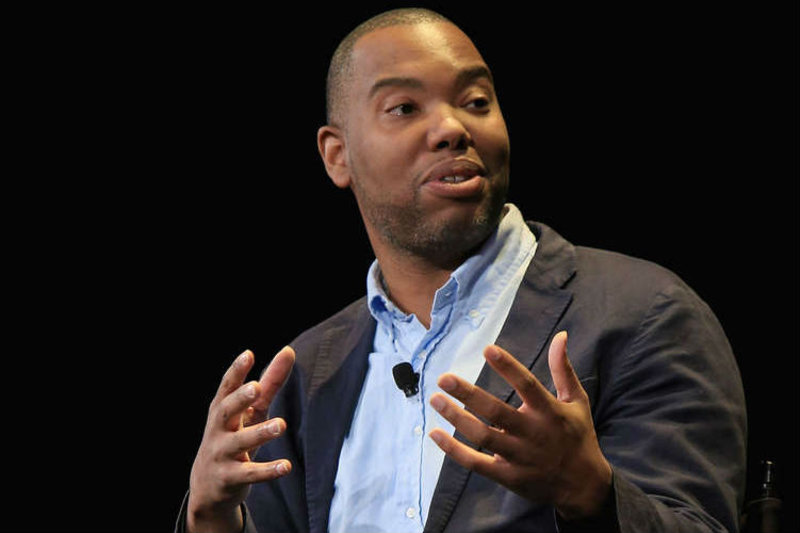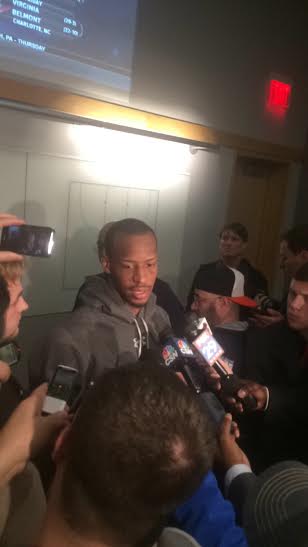Temple’s Intellectual Heritage Department Presents Ta-Nehisi Coates

WRITTEN BY: TAYLOR ALLEN
Ta-Nehisi Coates illustrated the black experience in America during his talk, “A Deeper Black: Race in America,” to a packed Liacouras Center.
The event was one of the biggest that the Intellectual Heritage Department has ever held.
The author and journalist is known for his work in The Atlantic, Washington City Paper, Philadelphia Weekly, The Village Voice and the Black Panther comics, among many other publications. Coates’s greatest claim to fame, however, is his book, “Between the World and Me.” His famous book was written almost entirely as a letter to his son about the experiences of being Black in America.
Coates began his talk by reading excerpts from “Between the World and Me.” He read to the crowd about his childhood in the 1980s, drawing contrasts between his childhood in West Baltimore to the world of middle-class White America.
At first, Coates spoke about simple things that most inner-city black children experience, including the differences of worrying about safety in certain areas, being protected by friend groups and feeling weary of your surroundings.
“We felt unsafe,” Coates said. “That suburban imaginary was alien to me…that not all, but most white people are accustomed to.”
Coates went on to discuss the history of the race disconnect. He began by introducing a key theme to his talk.
“There is nothing in your genes that makes you white,” Coates said. “There is nothing in my genes that makes me black. A decision was made.”
Coates later discussed how indentured servants and slaves were united at the beginning of America’s history. He then proceeded to speak about the country’s chronology in relation to race, spelling out the various laws put in place to divide racial groups. The laws created a dichotomy of separate two groups, resulting in race as a social construct.
Coates argued that the mixture of history and race laws is what led to one group’s rights being stripped, while rights were awarded to another. He credits this as a key factor in the birth of white privilege.
“By 1850, 59% of U.S. exports were cotton. This is a country built on the backs of black people,” Coates said.
At the end of his talk, Coates allowed the audience to ask questions.
The overall theme of most audience questions had to do with Temple’s relationship, or lack thereof, with the North Philadelphia community. This was presumably in response to last weekend’s altercation between Temple students and adolescent residents.
Coates could not offer much commentary on the subject due to his lack of knowledge of the educational institution and the surrounding community.
The central topic of the night was America’s relationship with race, and how that relationship has manifested over time. The message that Coates seeks to get across is that, although the relationship has improved over time, there is still work to be done.




